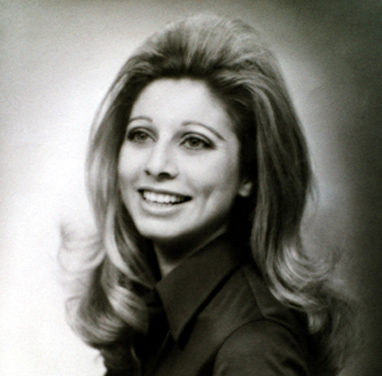by Scott Mehl © Unofficial Royalty 2015

Queen Alia of Jordan; Credit – Wikipedia
Queen Alia was the third wife of King Hussein of Jordan. She was born Alia Baha Ad-Din Touqan on December 15, 1948, in Cairo, Egypt, the daughter of Baha Ad-Din Touqan and Hanan Hashim. Her father was a former Jordanian ambassador to the United Kingdom, Italy, Turkey, and Egypt. He served under King Abdullah I of Jordan, was instrumental in writing the Jordanian Constitution, and served as the country’s first ambassador to the United Nations.
Because of her father’s diplomatic work, the family moved often and Alia attended school wherever they lived. She attended the Rome Center of Liberal Arts in Rome (now the John Felice Rome Center), a branch of Loyola University Chicago, and studied political science, psychology, and public relations at Hunter College in New York. In 1971, she moved to Jordan where she worked for Royal Jordanian (at the time named Alia Airlines, in honor of King Hussein’s eldest daughter Alia). She was then asked to organize the first International Water Skiing Festival in Aqaba. It was there, where King Hussein had a holiday villa, the two began their relationship.
King Hussein and Alia married privately on December 24, 1972, and Alia was named Queen Alia al-Hussein. The couple had two children and one adopted daughter:
- Princess Haya (born 1974), married Sheikh Mohammed bin Rashid Al Maktoum, Emir of Dubai, Vice President and Prime Minister of the United Arab Emirates, had two children, divorced
- Prince Ali (born 1975), married Rym Brahimi, a former CNN journalist, had two children
- Abir Muhaisen (born 1972, adopted in 1976), Abir had been orphaned when her mother was killed in a plane crash at a Palestinian refugee camp in Jordan.
Along with raising her family, Queen Alia broke with tradition by taking on a much more public role than any of her predecessors. She established the Office of the Queen of Jordan and began working with numerous charities and organizations, particularly those dealing with women, children, and social development. She established scholarships to help impoverished children gain a quality education. She also promoted the arts and literature in Jordan, helping to establish libraries around the country, and starting several Arts festivals which continue to this day.
Queen Alia also tackled some political issues. She very publicly fought for the rights of women to vote and be elected to public office. Thanks in part to her efforts, a law was put forth in 1974 allowing both. However, it would not be enacted until 1989.
On February 9, 1977, Queen Alia was killed in a helicopter crash in Amman. She was returning from a trip to Tafileh, about 140 miles south of Amman, where she was inspecting a hospital after reading negative reports about it in the media. Flying in a violent rainstorm, the military helicopter crashed and all aboard were killed. Completely devastated, King Hussein announced Alia’s death on television and radio. Following a traditional funeral service, Queen Alia was interred at the Royal Cemetery at Al-Maquar. King Hussein had a huge mausoleum built for his wife on a hill outside of the city and Queen Alia’s remains were moved there in 1980.
This article is the intellectual property of Unofficial Royalty and is NOT TO BE COPIED, EDITED, OR POSTED IN ANY FORM ON ANOTHER WEBSITE under any circumstances. It is permissible to use a link that directs to Unofficial Royalty.
Hashemite Kingdom of Jordan Resources at Unofficial Royalty
